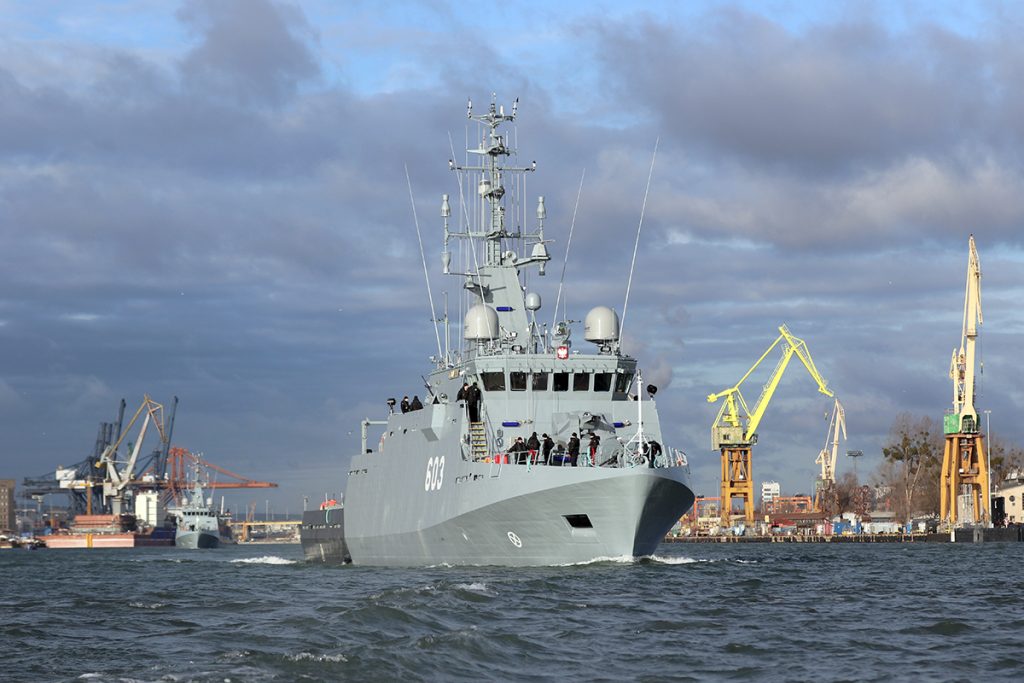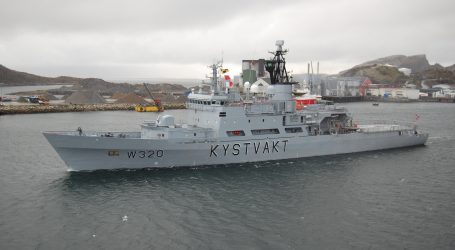Poland, together with Germany and Sweden, take command in the Baltic Sea
Polish, Swedish and German sailors will take command of allied naval exercises and operations in the Baltic Sea for the next four years, spokesman for the Maritime Operations Centre – Maritime Component Command Czesław Cichy said on Wednesday.
In a communiqué sent on Wednesday, the COM-DKM spokesman said that Polish sailors began their service in Rostock at the beginning of October this year. He added that together with Swedish and German sailors from DEU MARFOR, they will command allied naval exercises and operations in the Baltic Sea for the next four years.
He reported that POLMARFOR will be established in Poland during this time and will take over allied command at the end of 2028, as planned.
Cichy recalled that the rotational command by Poland, Germany and Sweden in the Baltic Sea was announced by Deputy Prime Minister, Minister of National Defence Władysław Kosiniak-Kamysz in Brussels in June this year after a meeting of defence ministers of NATO countries.
‘Command Task Force Baltic (CTF Baltic) taking over the command of NATO forces in the Baltic Sea was established on the basis of the operational command of the German navy DEU MARFOR in Rostock after the addition of national elements from Poland and Sweden. Poland contributed both sailors from the Maritime Operations Centre – Maritime Component Command in Gdynia, which is subordinate to the RSZ Operational Command, as well as units of the RSZ General Command,’ – explained the COM-DKM spokesman.
He reported that the position of deputy commander of CTF Baltic for the next two years will be taken over by Rear Admiral Piotr Nieć, a former expert of the Marshall Centre. Later, for another two years, the Polish officer will assume the duties of CTF Baltic’s Chief of Staff.
On the other hand, in 2028, Poland will be given the position of commander and CTF Baltic will be established on the basis of the future POLMARFOR.
In the communiqué, Cichy stressed the importance of the Baltic Sea for international trade and security.
‘From Poland’s point of view, the Baltic Sea, together with its infrastructure, is key to ensuring raw material security. There are power cables running along the seabed, the Baltic Pipe gas pipeline, which delivers gas from Norway, and then there is the Świnoujście gas port, the oil port in Gdańsk or the oil platforms,’ – he informed.
He conveyed that there are between 2,000 and more than 3,000 vessels in the Baltic Sea every day. There is international trade, transfer of raw materials and passenger traffic. Polish ports already handle nearly 150 million tonnes of cargo a year, including strategic raw materials such as oil and liquefied gas.
He stressed that revenues from taxes, duties and excise duties related to cargo handling and the use of Polish ports account for up to 10 per cent of the total state budget.
‘Due to the above factors, the scenarios of the Polish Navy or NATO exercises, which focus on operations related to the protection and defence of maritime communication routes, maintaining control at sea and preventing a maritime blockade of the Baltic Sea, which would mean being cut off from sources of supply and allied support, result to a large extent,’ – he reported.
He explained that many of the exercises will involve ship and air operations to cover maritime transport and shipping security. ‘It is mainly about countering water and air attacks and submarine attacks. The manoeuvres also include counter-terrorism, anti-piracy, as well as stabilisation, peace enforcement and humanitarian operations,’ – he added.
He pointed out that exercises of this nature are also key to creating the atmosphere of maritime security necessary for the undisturbed development of maritime transport and trade.
Source: PortalMorski.pl




